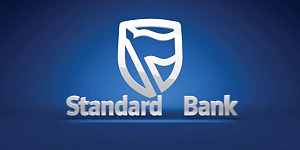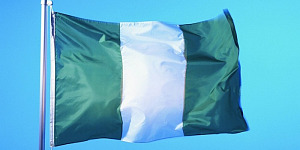Nigeria's central bank kept its monetary policy rate (MPR) at 14.0 percent "to safeguard the stability achieved in the foreign exchange market, and to allow time for past policies to work through the economy."
The Central Bank of Nigeria (CBN), which has maintained its rate since raising it by 200 basis points in July 2016, said its monetary policy committee was faced with the choice of either keeping the rate steady or easing its policy based on a fragile economic recovery that could "relapse int a more protracted recession if strong and bold monetary and fiscal policies are not activated immediately to sustain it."
However, the central bank also noted the implications of continued U.S. monetary policy normalization and a strong U.S. dollar, a weak recovery of commodity prices and the uncertainty of U.S. fiscal policy.
Six of the committee's members in attendance voted to maintain the MPR rate, along with other key rates, while two members wanted to cut the rate, arguing this would signal a sensitivity to growth and employment concerns by encouraging the flow of credit and reduce the cost of debt service, which is crowding out government expenditure.
The MPC said it was not "unmindful" of the high cost of capital and its implications for the "still ailing economy, which arguably necessitates and accommodating monetary policy stance."
But it added the risks from an easing would upstage the "modest stability" achieved in the foreign exchange market, lead to a possible exit of foreign portfolio investors, reignite inflation following the 2017 budget and further pull down real interest rates into negative territory.
Nigeria's inflation rate eased to 16.1 percent in June, the fifth consecutive month of decline from 18.72 percent in January, partly due to the relative stability in the foreign exchange market from the central bank's improved management that has promoted increased inflows.
But CBN said inflation still has a strong base effect that is expected to wane by August and remains concerned about the "unabating pressure from food inflation" though it is hopeful that this would dampen in the third quarter as harvests are brought in.
It is noted the impact of high energy and transportation costs as well as other infrastructural constraints on consumer prices and expressed hope the government would fast-track reforms.
Nigeria has been suffering from a shortage of U.S. dollars since the fall in crude oil prices in 2014 and has only recently been easing some of the restrictions and capital controls that were imposed in 2015 to shore up the naira's exchange rate.
The central bank operates a series of exchange rates in addition to the official rate, which has been largely unchanged around 315 to the U.S. dollar since August 2016. In June 2016 the CBN removed a 197 naira peg to the dollar, which then led to a 30 percent drop in its value.
In recent months the CBN has been pumping dollars into the market to narrow the spread between the official naira rate and black market rates along with other regulatory steps. Last month, for example, the CBN introduced a new spread limit on interbank transactions and allowed traders to buy hard currency from each other without its prior approval.
"Against this backdrop, the Committee reiterated its commitment to sustain and deepen flexibility in the foreign exchange market to further enhance foreign exchange flow in the economy," it said.
In June total foreign exchange flows through the central bank rose by 35.41 percent from May while outflows fell by 12.73 percent due to reduced interventions so positive net flows helped improve gross external reserves to US$30.3 billion end-June from $29.81 billion end May.









































